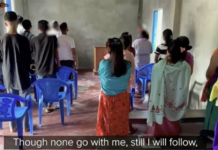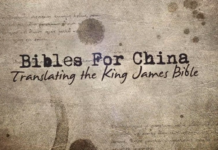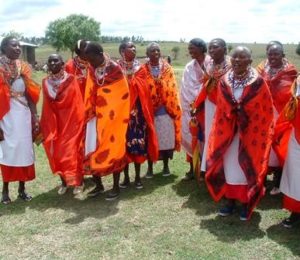
Houston, TX (ANS) – What is the Great Commission anyway? A recent study showed that a large percentage of church goers in North America did not know. A very simple summary of the Great Commission could be “communicating the Gospel to everyone” and “making disciples (followers of Jesus) among all people groups.”
The next question might be “What is Orality?” There are still a lot of people asking that question. Here is a website with a good definition and explanation http://www.orality.info/. The websites at the end of this article are great places to find other resource.
Completing the Great Commission
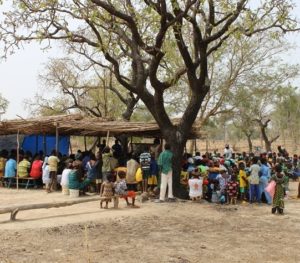
When we think about actually completing the Great Commission, we must consider what it will take to reach and disciple the least and last unreached people groups. Jesus didn’t say make disciples of all literate people groups, but all people groups. Many past mission strategies have been about reducing a language to writing, translating the Scriptures, teaching people how to read, then introducing them to Jesus. Now we know that we can introduce people to Jesus, whether they ever learn to read or have the Bible in their language.
Oral Cultures and Oral Art Forms
There are still several hundred language groups in the world today who have no written form or any Scripture in their language. With better understanding of Oral Cultures and Oral Art Forms, we know that people can begin a relationship with the Lord and become reproducing followers of Jesus, before they have the Bible in their language. However, Orality Missiologists are also advocates and supporters of Bible translation work and literacy programs.
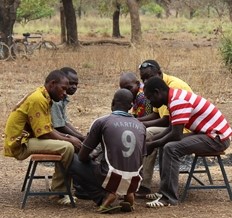
Some places where Living Water International staff and partners have conducted Orality Training we have found that Oral Strategies have accelerated both Bible translation and literacy programs. One Bible Translator in Central America reported that after participating in Living Water’s Orality Training, the process of discipling new believers had been cut from seven years to one year. There are other missiologists who have been practicing and advocating for what is sometimes referred to as rapidly advancing disciple making. One of the keys is streamlining and simplifying to a more Early Church model.
Biblical Disciple Making
When we get our minds around biblical disciple making, we recognize it is often very different from the Modern Western, Post-Reformation Church traditions. It’s not so much about programs, classes, accumulating information or curriculum. It’s primarily about introducing people to a relationship with Jesus and nurturing them on the journey of following Him. The commands and instructions of Jesus are not complicated or confusing. That’s not to say they are easy, but they are clear enough for the simple, common people to understand. The well known hymn, “Trust and Obey” is a simple summary of His commission to each of His followers.
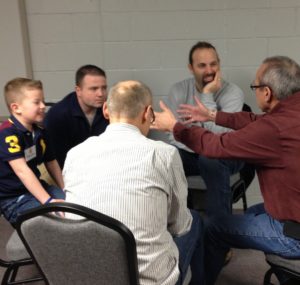
People are often amazed and surprised when we say that with five stories from the Gospels, we can give community, a village or tribal group a way to begin a relationship with the Lord and become reproducing followers of Jesus. The key, of course, is the pre-and post-story dialogue where we can share a simple narrative theology of the most important things they need to know. An important question is, how much and what do people need to know? Not from 2,000 years of teaching and church traditions, but from the Early Church, and primarily from the life, the Spirit and teaching of Jesus.
The Supernatural Work of God
The spiritual new birth is a supernatural work of the Spirit of God. In like manner, the life we live and the ministry we all have is to be His work through us. It is a delight when we experience the power of God to change lives. When we sow the Good Seed of the Word of God into the lives of others, we can expect that occasionally it will take root in fertile soil. Jesus gave us a perspective on this in the parable of the Sower and the Soil recorded in Mark chapter 4.
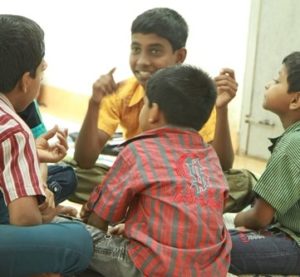
Over the years I’ve experienced how a simple conversation of sharing Jesus can be used to transform a life. Sometimes it’s a long term relationship before there’s spiritual fruit. However, if we faithfully live out, and share the Word and Spirit of God, we can expect much fruit. It is important to realize that it’s not our gifts, but the Gospel that is the power of God unto salvation. God is an equal opportunity employer, and He is no respecter of persons.
Understanding Cultural Value Systems
I recently caught up with some friends we shared with a few years ago. We told them about the value of making eye contact, greeting people and watching for opportunities to bring Jesus in to our conversations. They shared how that simple approach had produced much fruit in their witness and ministry efforts. Of course, there are some cultural issues we should be aware of. There are places where it is inappropriate to make eye contact or greet strangers. Understanding cultural value systems is vital when ministering in various parts of the world. A great resource is – http://honorshame.com/
For more information on Orality resources, training opportunities, and other events, visit – www.orality.net or www.water.cc/orality.



